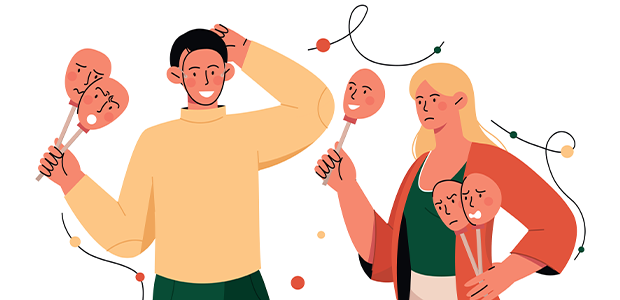
Is it okay to have imposter syndrome?
In the world of startups and entrepreneurship, the phenomenon of imposter syndrome is becoming more and more common.
Characterised by persistent self-doubt and a sense of intellectual deceit, this psychological pattern is not uncommon among founders and business professionals. Despite their achievements, many individuals feel like they're 'faking it', fearing that one day they'll be exposed as a fraud. This article delves into the reality of Imposter Syndrome, exploring its implications for professionals in the tech industry and debating its normalcy and impact on personal and professional growth.
This article was inspired by a panel session at Lean In, Lift Up, Nurture Network’s Inaugural Festival.
Is imposter syndrome that big of a deal?
KPMG research in 2020 found that 75% of female executives had experienced imposter syndrome. According to Psychology Today, around 25-30% of high achievers may suffer from imposter syndrome, and around 70% of adults will experience it at least once in their lifetime. All of these statistics just go to show that imposter syndrome isn’t something that very few people struggle with. A vast number of people face imposter syndrome at some point in their career, but for some, it can be what holds them back from their true potential.
Though, whilst it may feel like people are constantly talking about imposter syndrome, the case is that many people don’t have the words to describe it. During the panel, Mildred Talabi, Founder of Visible Women Tribe, commented: “It is something that I think, looking back, I have identified feeling, but I've just never labelled it as imposter syndrome. I think for me, it's more of a terminology thing. Because I do believe that when you speak certain words into yourself, you can kind of start acting it out in your life.”
How can you harness imposter syndrome to work for you?
For some, imposter syndrome has meant that they have been able to have a greater level of self-awareness and can harness that uncomfortable feeling into action.
“When that imposter syndrome starts firing and I can hear that inner voice starting to doubt myself, it’s a trigger for me to see that there's obviously something that's going on that I'm not comfortable with, or something's worrying me. Therefore, I need to flick into focusing on a little bit of that detail and change my approach,” commented Richard Bearman, Small Business Lending at British Business Bank.
Ella Wales Bonner, Partner at Cornerstone VC mentioned how when imposter syndrome rears its head, it can be a sign of growth. “I think one of the biggest things for me, when I was reflecting on moments of imposter syndrome, is that in situations where I'm in my stress zone and pushing myself and I'm experiencing imposter syndrome, and ultimately when we want to go out and achieve our goals and push ourselves there is a level of uncomfortableness that comes with that. So, the way I can reframe it and think about it is that if I'm feeling impostor syndrome, it means that I'm growing, I'm pushing myself, I'm learning something new, I'm putting myself in a situation I haven't been in before. So, I use that as a good sign that there’s real growth happening.”
Talabi was unsure if you could ever flip the term imposter syndrome into something positive. “The very word imposter syndrome is this idea of feeling like ‘I'm a fraud. I'm not who I'm supposed to be.’ Can you ever turn that into a good thing?
“I don't think we can reclaim imposter syndrome to be something positive, or that we can scrap it and just embrace the fact that yes, we will go through situations when we feel stretched or like we're a little bit out of our depth, and that's okay. We go through it, or we get over it. But to term it ‘imposter’, now that puts a big emphasis on it and can keep us stuck in a place that I don’t think is actually helpful.”
The lesson to be learned
Experiencing imposter syndrome doesn’t always have to be fully negative. People have harnessed this feeling and flipped it on its head to use it as a superpower, rather than an obstacle.
As research has shown, it is a lot more common than you think. If anything, imposter syndrome is a rite of passage for many successful entrepreneurs, and knowing that can take the edge off.
One of the biggest takeaways from this panel session was a closing comment from Talabi. She said: “You don’t need to know everything, you just need to know more than the person you’re helping.”
When people are experiencing imposter syndrome, the feeling that they need to know everything about what they do, and be the best at it, can be a massive hindrance. But no one knows everything, and that’s okay. What matters is the act of constantly learning and ensuring that you’re growing in your career. Not knowing something doesn’t make you an imposter, it makes you human.

